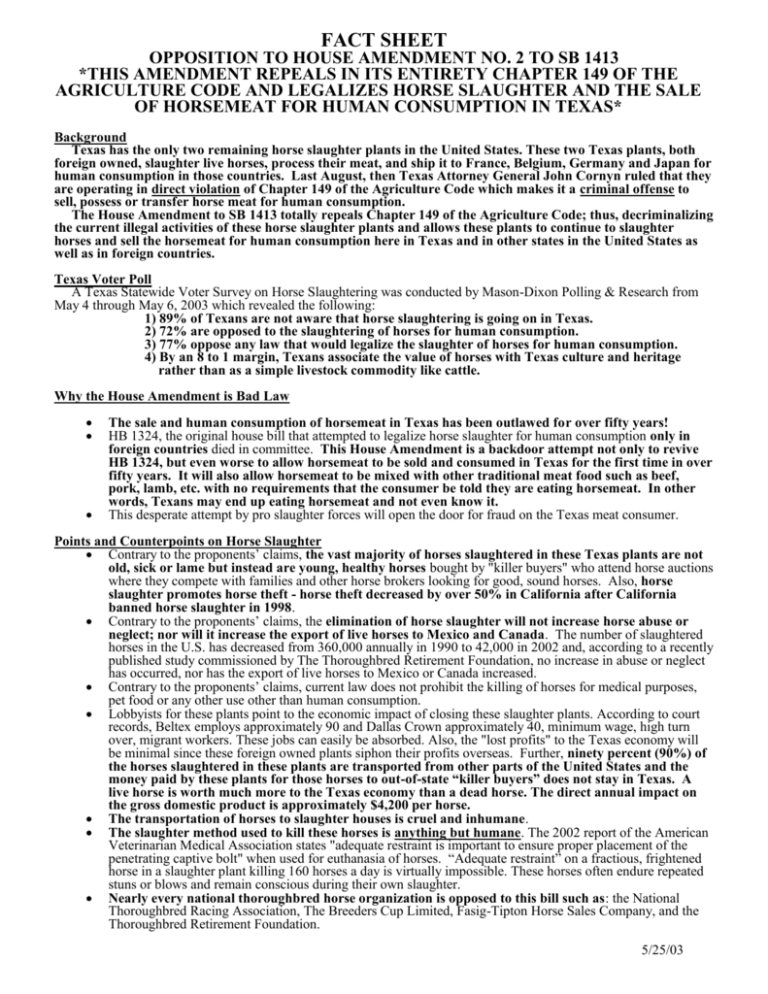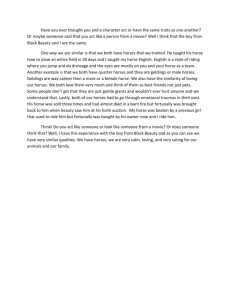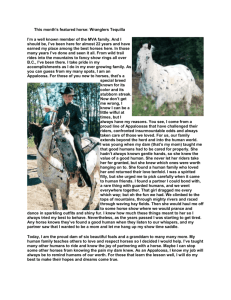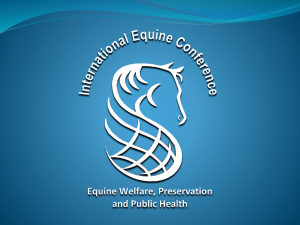May 25, 2003 THLN Fact Sheet
advertisement

FACT SHEET OPPOSITION TO HOUSE AMENDMENT NO. 2 TO SB 1413 *THIS AMENDMENT REPEALS IN ITS ENTIRETY CHAPTER 149 OF THE AGRICULTURE CODE AND LEGALIZES HORSE SLAUGHTER AND THE SALE OF HORSEMEAT FOR HUMAN CONSUMPTION IN TEXAS* Background Texas has the only two remaining horse slaughter plants in the United States. These two Texas plants, both foreign owned, slaughter live horses, process their meat, and ship it to France, Belgium, Germany and Japan for human consumption in those countries. Last August, then Texas Attorney General John Cornyn ruled that they are operating in direct violation of Chapter 149 of the Agriculture Code which makes it a criminal offense to sell, possess or transfer horse meat for human consumption. The House Amendment to SB 1413 totally repeals Chapter 149 of the Agriculture Code; thus, decriminalizing the current illegal activities of these horse slaughter plants and allows these plants to continue to slaughter horses and sell the horsemeat for human consumption here in Texas and in other states in the United States as well as in foreign countries. Texas Voter Poll A Texas Statewide Voter Survey on Horse Slaughtering was conducted by Mason-Dixon Polling & Research from May 4 through May 6, 2003 which revealed the following: 1) 89% of Texans are not aware that horse slaughtering is going on in Texas. 2) 72% are opposed to the slaughtering of horses for human consumption. 3) 77% oppose any law that would legalize the slaughter of horses for human consumption. 4) By an 8 to 1 margin, Texans associate the value of horses with Texas culture and heritage rather than as a simple livestock commodity like cattle. Why the House Amendment is Bad Law The sale and human consumption of horsemeat in Texas has been outlawed for over fifty years! HB 1324, the original house bill that attempted to legalize horse slaughter for human consumption only in foreign countries died in committee. This House Amendment is a backdoor attempt not only to revive HB 1324, but even worse to allow horsemeat to be sold and consumed in Texas for the first time in over fifty years. It will also allow horsemeat to be mixed with other traditional meat food such as beef, pork, lamb, etc. with no requirements that the consumer be told they are eating horsemeat. In other words, Texans may end up eating horsemeat and not even know it. This desperate attempt by pro slaughter forces will open the door for fraud on the Texas meat consumer. Points and Counterpoints on Horse Slaughter Contrary to the proponents’ claims, the vast majority of horses slaughtered in these Texas plants are not old, sick or lame but instead are young, healthy horses bought by "killer buyers" who attend horse auctions where they compete with families and other horse brokers looking for good, sound horses. Also, horse slaughter promotes horse theft - horse theft decreased by over 50% in California after California banned horse slaughter in 1998. Contrary to the proponents’ claims, the elimination of horse slaughter will not increase horse abuse or neglect; nor will it increase the export of live horses to Mexico and Canada. The number of slaughtered horses in the U.S. has decreased from 360,000 annually in 1990 to 42,000 in 2002 and, according to a recently published study commissioned by The Thoroughbred Retirement Foundation, no increase in abuse or neglect has occurred, nor has the export of live horses to Mexico or Canada increased. Contrary to the proponents’ claims, current law does not prohibit the killing of horses for medical purposes, pet food or any other use other than human consumption. Lobbyists for these plants point to the economic impact of closing these slaughter plants. According to court records, Beltex employs approximately 90 and Dallas Crown approximately 40, minimum wage, high turn over, migrant workers. These jobs can easily be absorbed. Also, the "lost profits" to the Texas economy will be minimal since these foreign owned plants siphon their profits overseas. Further, ninety percent (90%) of the horses slaughtered in these plants are transported from other parts of the United States and the money paid by these plants for those horses to out-of-state “killer buyers” does not stay in Texas. A live horse is worth much more to the Texas economy than a dead horse. The direct annual impact on the gross domestic product is approximately $4,200 per horse. The transportation of horses to slaughter houses is cruel and inhumane. The slaughter method used to kill these horses is anything but humane. The 2002 report of the American Veterinarian Medical Association states "adequate restraint is important to ensure proper placement of the penetrating captive bolt" when used for euthanasia of horses. “Adequate restraint” on a fractious, frightened horse in a slaughter plant killing 160 horses a day is virtually impossible. These horses often endure repeated stuns or blows and remain conscious during their own slaughter. Nearly every national thoroughbred horse organization is opposed to this bill such as: the National Thoroughbred Racing Association, The Breeders Cup Limited, Fasig-Tipton Horse Sales Company, and the Thoroughbred Retirement Foundation. 5/25/03








